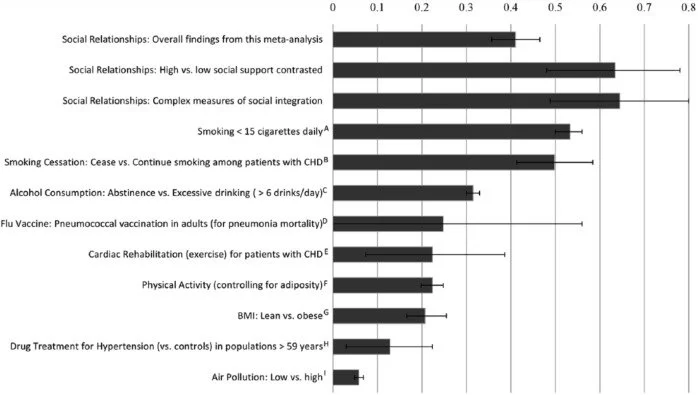The Power of Social Connection
Isolation and the lack of social connection over the past couple of years has had a huge toll on everyone’s mental health. It’s not a new discovery that humans are social creatures, however the pandemic has really highlighted how important being connected to one another is for our wellbeing.
In a paper published in the American Journal of Lifestyle Medicine, The Connection Prescription: Using the Power of Social Interactions and the Deep Desire for Connectedness to Empower Health and Wellness, Jessica Martino and colleagues present research over the past few decades surrounding the impact of social connections on health and wellbeing. The authors argue that human connection is a vital human need, and that medical professionals should be prescribing ‘social connection’ in the same way that they would prescribe vitamins or daily exercise.
Connectedness (or the need to belong or have close relationships) is suggested to be one of the basic human needs - along with autonomy (the need for agency or taking control of one’s life) and competence (having the proper skills and resources). When these three basic needs are met, people are more likely to be motivated and perform optimally. However, when one or more of the three is lacking then the person is unable to reach their true potential. We discuss this in more detail here!
By engaging in social behaviour, we release oxytocin, the “bonding hormone”, and other hormones that are associated with positive emotions and mood regulation. Indeed, many studies have highlighted the power of social connection on mental health. A study in the UK looking at over 4000 men found that being part of a group (organizations, clubs, societies, etc.) can significantly decrease the risk of developing depression and can also improve symptoms in those already diagnosed with depression. Being part of a group has also been shown to reduce symptoms of post-traumatic stress and aging adults with social support are better able to take care of themselves.
But social connection doesn’t just affect our psychological health. Martino and colleagues also discuss the impact of social connection on our physical health. A study looking at the effects connection on individuals with type 2 diabetes found that after a 6-month social connection intervention, individual with type 2 diabetes had significantly lower blood glucose compared to the control group. Social connection also appears to impact the longevity and quality of life in both men and women living with cancer, and on mortality risk in those with cardiovascular disease. In a study of 734,626 middle-aged women, researchers found that living with a partner decreased the risk of heart disease mortality compared to living alone.
The power of social connectedness is so profound that some research indicates that social connectedness might be even more important than other lifestyle factors such as smoking, alcohol consumption, physical activity, and obesity on mortality risk.
Figure from Holt-Lunstad et al. 2010. This meta-analysis studied the impact of various lifestyle factors on decreased risk of mortality. The researchers found that social interactions reduced mortality risk to the same degree or more than other factors such as smoking cessation, alcohol abstinence, and physical activity.
N.B. Decreased mortality is measured in odds ratio with 0 as the baseline. A 0.5 odds ratio indicates that there was a 50% greater likelihood of survival.
Given the extensive evidence of social connection on both physical and mental health outcomes, the authors suggest that physicians and healthcare providers should prescribe social connection in the same way that exercise is prescribed - using the FITT principle:
Frequency - How often should social interaction occur? (e.g. daily, weekly, monthly)
Intensity - What is the quality of the social interaction? (e.g. is it a new connection, is it a shared activity, is there a deep connection, etc.)
Time - How long is the social interaction? (e.g. in minutes, hours)
Type - What type of social interaction is it? (e.g. being part of a group or organization, family gathering, friend get-together, phone call, etc.)
While more research is needed, the authors suggest that individuals partake in a social interaction of some kind at least once per week, but ideally daily. The authors also suggest that these interactions can be a phone or video chat which is good news for the current environment! In a time when physical distancing and isolation is so prevalent, finding ways to stay socially connected is even more important. Scheduling socializing into your day can reduce your risk of mortality and morbidity, and significantly improve the quality of your life.


